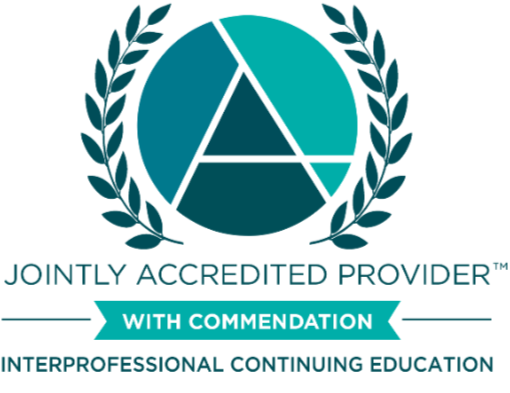Create an account or log in to participate in this activity
This module will provide a brief overview of the current opioid crisis, neurobiology of opioid addiction, and goals for use of medications for opioid use disorder.
At the conclusion of this activity, participants should be better able to:
Primary care clinicians who would like to better manage patients who have opioid use disorder, including physicians, nurse practitioners, physician assistants, and nurses.

In support of improving patient care, Boston University Chobanian & Avedisian School of Medicine is jointly accredited by the Accreditation Council for Continuing Medical Education (ACCME), the Accreditation Council for Pharmacy Education (ACPE), and the American Nurses Credentialing Center (ANCC), to provide continuing education for the healthcare team.
Boston University Chobanian & Avedisian School of Medicine designates this enduring material for a maximum of 0.50 AMA PRA Category 1 Credit(s)™. Physicians should claim only the credit commensurate with the extent of their participation in the activity.
Continuing Nursing Education Provider Unit, Boston University Chobanian & Avedisian School of Medicine is accredited as a provider of continuing nursing education by the American Nurses Credentialing Center's Commission on Accreditation.
Contact Hours: 0.50, all of which is eligible for pharmacology credit
In order to successfully complete this activity, you are required to view the entire module and complete the posttest and evaluation. CME, CNE, or AAFP credit will be awarded provided a score of 67% or better is achieved. A certificate of credit for immediate download to those who successfully complete.
This program is supported by an educational grant from Alkermes.
Boston University Chobanian & Avedisian School of Medicine asks all individuals involved in the development and presentation of Accredited Continuing Education activities to disclose all financial relationships with ineligible companies. This information is disclosed to all activity participants prior to the start of the educational activity. Boston University Chobanian & Avedisian School of Medicine has procedures to mitigate all relevant financial relationships with ineligible companies. In addition, faculty members are asked to disclose when any unapproved use of pharmaceuticals and devices is being discussed.
In accordance with the Standards for Integrity and Independence in Accredited Continuing Education, all relevant financial relationships with ineligible companies that faculty, planners, authors and anyone who may be in control of content have been mitigated.
Daniel P. Alford, MD, MPH (CME Course Director)
Professor of Medicine
Associate Dean, Continuing Medical Education
Director, Clinical Addiction Research and Education (CARE) Unit
Boston University Chobanian & Avedisian School of Medicine | Boston Medical Center
Kristin Wason, MSN, NP-C, CARN (CNE Course Advisor)
Clinical Educator, Massachusetts OBAT TTA
Boston University Chobanian & Avedisian School of Medicine | Boston Medical Center
Faculty members have no relevant financial relationships to disclose. Faculty members do not plan on discussing unlabeled/investigational uses of a commercial product.
Christopher Drury, MA, MA, Medical Writer, has no relevant financial relationships to disclose.
Ilana Hardesty, Senior Operations Manager, Boston University Chobanian & Avedisian School of Medicine CCE, has no relevant financial relationships to disclose.
Carmela A. Townsend, DNP, MS/MBA, RN, Lead Nurse Planner, Boston University Chobanian & Avedisian School of Medicine CCE, has no relevant financial relationships to disclose.
Date of Original Release: February 1, 2020
Date of Most Recent Review: August 18, 2023
Date of Expiration: August 17, 2026
THIS CONTINUING MEDICAL EDUCATION PROGRAM IS INTENDED SOLELY FOR EDUCATIONAL PURPOSES FOR QUALIFIED HEALTH CARE PROFESSIONALS. IN NO EVENT SHALL BOSTON UNIVERSITY BE LIABLE FOR ANY DECISION MADE OR ACTION TAKEN IN RELIANCE ON THE INFORMATION CONTAINED IN THE PROGRAM. IN NO EVENT SHOULD THE INFORMATION CONTAINED IN THE PROGRAM BE USED AS A SUBSTITUTE FOR PROFESSIONAL CARE. NO PHYSICIAN-PATIENT RELATIONSHIP IS BEING ESTABLISHED.
SCOPE of Pain
© 2026 Trustees of Boston University. Site by Root802.